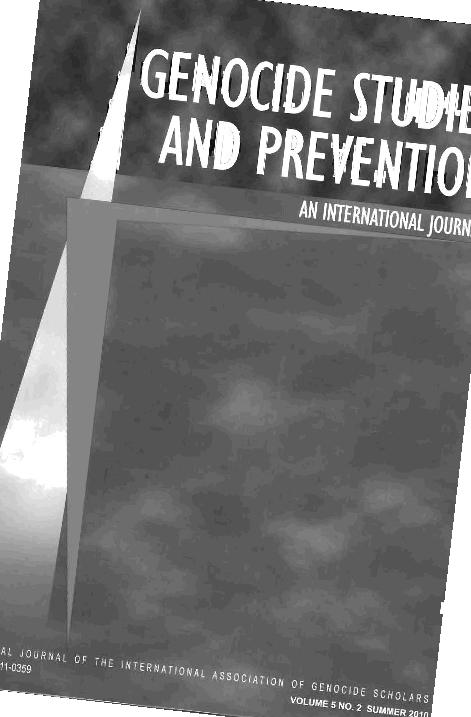Artículo
Discussing Indigenous Genocide in Argentina: Past, Present, and Consequences of Argentinean State Policies toward Native Peoples
Delrio, Walter Mario ; Lenton, Diana Isabel
; Lenton, Diana Isabel ; Musante, Marcelo; Nagy, Mariano Ariel
; Musante, Marcelo; Nagy, Mariano Ariel ; Papazian, Alexis Esteban Roberto
; Papazian, Alexis Esteban Roberto ; Pérez, Pilar María Victoria
; Pérez, Pilar María Victoria
 ; Lenton, Diana Isabel
; Lenton, Diana Isabel ; Musante, Marcelo; Nagy, Mariano Ariel
; Musante, Marcelo; Nagy, Mariano Ariel ; Papazian, Alexis Esteban Roberto
; Papazian, Alexis Esteban Roberto ; Pérez, Pilar María Victoria
; Pérez, Pilar María Victoria
Fecha de publicación:
08/2010
Editorial:
International Association of Genocide Scholars
Revista:
Genocide Studies and Prevention
ISSN:
1911-0359
e-ISSN:
1911-9933
Idioma:
Inglés
Tipo de recurso:
Artículo publicado
Clasificación temática:
Resumen
For a long time the historiographical and anthropological narrative in Argentina contributed to a double assumption that is nowadays strongly grounded in citizens' common sense. On the one hand, the extinction of Indigenous peoples is vaguely dated to a period from the Spanish conquest to the military campaigns known as the “conquest of the desert”; on the other hand, such extinction is simultaneously interpreted as a “natural” process in universal history. Argentine state policies were thus naturalized. It is frequently assumed that this set of natural processes might have left only individual “descendants,” in place of political entities. Therefore, modern Argentine society would be the outcome of a European “melting pot” in which the Indigenous component is absent. We postulate that physical elimination, concentration practices, deportation, enslavement, identity cleansing of children, and cultural destruction constitute mechanisms of homogenization that add up to conceptualizing policies toward Indigenous peoples in Argentina as genocide. Ethnic politics following the military campaigns were based on the assumption of the near-“extinction” of those peoples. Federal and provincial governments constructed their policies on the basis of considering Indigenous peoples as “survivors,” “the final remains of an ending culture,” “the few left,” and so on, omitting to name the causes of that supposed extinction. Our focus in this article is on current cultural policies that announce intercultural, plurality, and diversity goals while at the same time aiming to limit the margins of Indian political autonomy. We propose that this genocidal project is linked inextricably to the constitution and organization of the Argentine national state.
Palabras clave:
Genocidio
,
Indígenas
,
Argentina
,
Conquista
Archivos asociados
Licencia
Identificadores
Colecciones
Articulos(IIDYPCA)
Articulos de INST. DE INVESTIGACIONES EN DIVERSIDAD CULTURAL Y PROCESOS DE CAMBIO
Articulos de INST. DE INVESTIGACIONES EN DIVERSIDAD CULTURAL Y PROCESOS DE CAMBIO
Citación
Delrio, Walter Mario; Lenton, Diana Isabel; Musante, Marcelo; Nagy, Mariano Ariel; Papazian, Alexis Esteban Roberto; et al.; Discussing Indigenous Genocide in Argentina: Past, Present, and Consequences of Argentinean State Policies toward Native Peoples; International Association of Genocide Scholars; Genocide Studies and Prevention; 5; 2; 8-2010; 138-159
Compartir
Altmétricas



